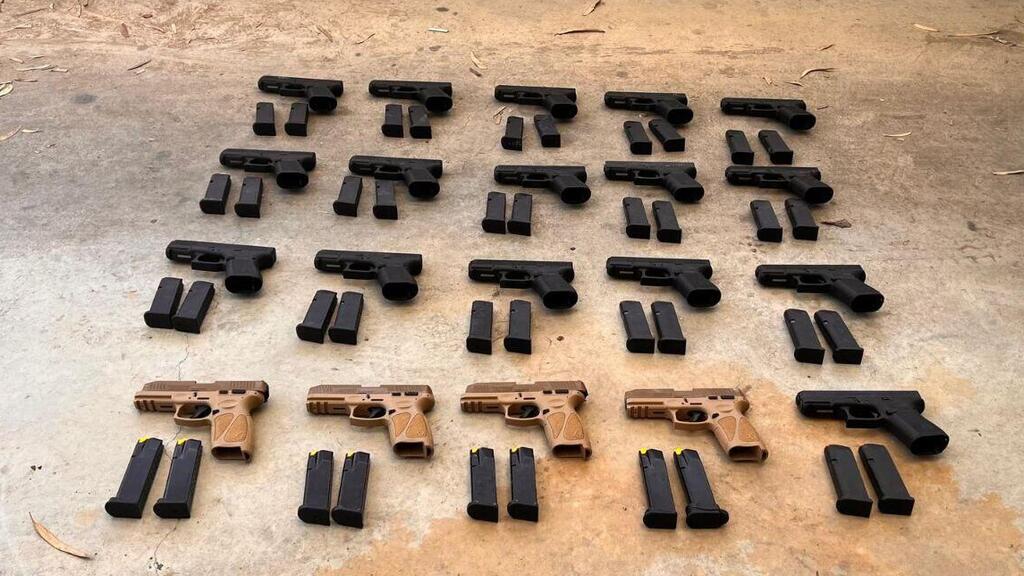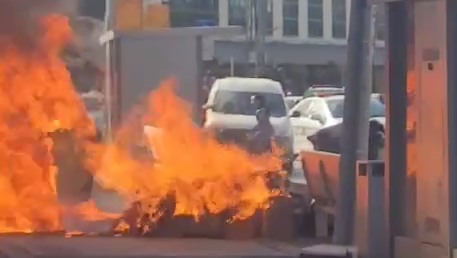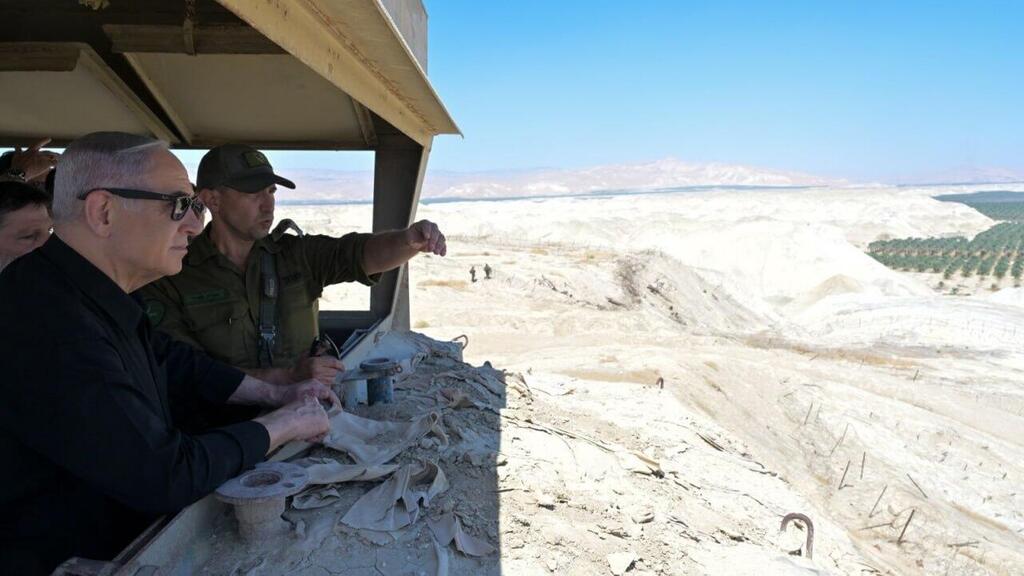Getting your Trinity Audio player ready...
Police seize weapons smuggled from Jordan
(Video: Israel Police)
The ongoing war in Israel’s north has fueled a surge in smuggling attempts across the Jordanian border. On Tuesday, Israeli police from the Nagen unit, responsible for securing the Jordanian and Egyptian frontiers, seized 75 Glock pistols hidden in a vehicle driven by two Bedouin men from the Negev Desert. This follows the July interception of 33 handguns at the Rabin border crossing with Jordan.
The weapons are often destined for terrorists in the West Bank, as Iran and Hamas continue efforts to arm terrorists and encourage attacks on Israeli settlers and troops.
However, the arms also find their way into the hands of criminal gangs within Israel, where demand for weapons is rising due to gang violence, particularly in the Israeli Arab sector. A single Glock can fetch up to NIS 35,000 ($9,500), twice its cost in Jordan.
Violence escalated further on Thursday when four people, including two children, were killed in Ramla after an explosive device was thrown at a car, sparking a fire in a crowded shop. A dozen others were injured, five critically.
A Nagen unit commander noted that the war has increased the demand for weapons, especially in the West Bank, north and south of Israel. "Weapons come in from Jordan, and drugs cross from Egypt, but intelligence indicates a growing demand for arms," he said. Smugglers, operating with military precision, use organized methods involving security teams, coordinators and lookouts to ensure their success.
Israel’s eastern border with Jordan remains largely unfortified, raising concerns among residents of the Arava Desert and Eilat, particularly following the October 7 Hamas attack. In response, construction of a border barrier has begun in some areas, and local security measures have been heightened.
Earlier this week, Prime Minister Benjamin Netanyahu toured the Jordan Valley following a deadly attack at the King Hussein border crossing. He pledged to collaborate with Jordan to prevent further attacks and halt weapons smuggling into the West Bank. Netanyahu also promised the construction of a "strong barrier" along the border.









